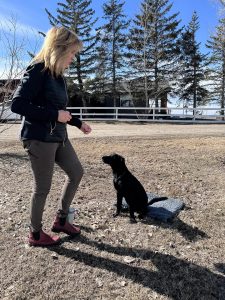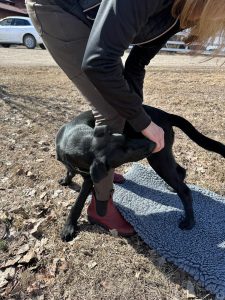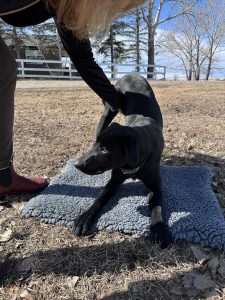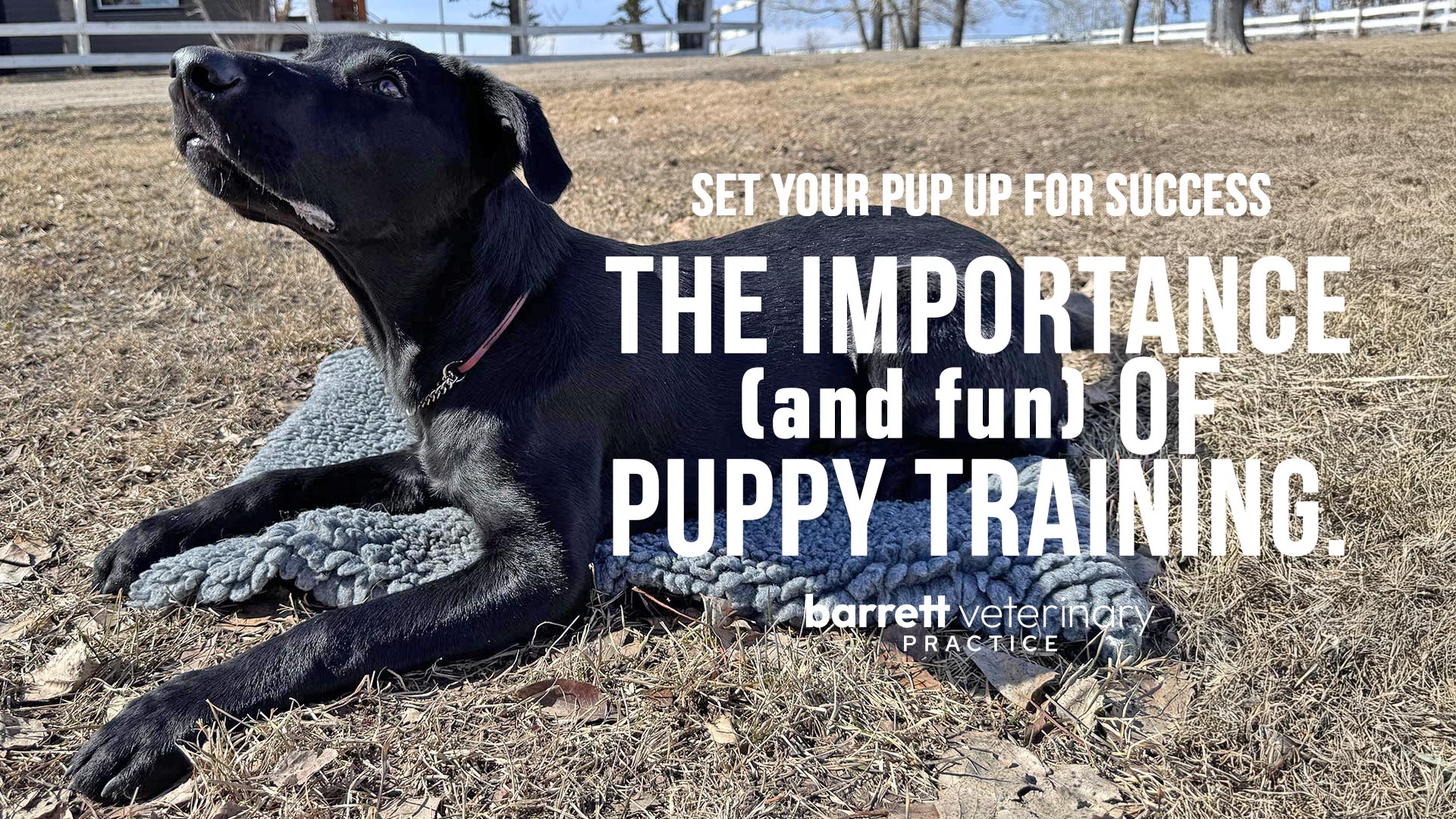Setting Your Pup Up for Success
Bringing a new puppy into your home is an exciting and rewarding experience. Those first few months are filled with snuggles, playtime, and plenty of adorable moments. But did you know that the first 16 weeks of a puppy’s life are the most crucial for learning? During this time, their brain is developing at an incredible rate, and the skills they learn will shape their behaviour for the rest of their lives.
 I’ve recently welcomed a black Labrador puppy, Zip, into my family, and I’ve been having so much fun training him! As a veterinarian, I’ve always believed in the importance of early training, and Zip has been the perfect reminder of why these first few months matter so much.
I’ve recently welcomed a black Labrador puppy, Zip, into my family, and I’ve been having so much fun training him! As a veterinarian, I’ve always believed in the importance of early training, and Zip has been the perfect reminder of why these first few months matter so much.
Why Early Training is So Important
Puppies are like little sponges in their early weeks, soaking up experiences and forming lifelong habits. After about 16 weeks, the nervous system starts to “trim back” unused neural connections, meaning the more positive experiences and skills you introduce early on, the better prepared your pup will be for life.
That’s why I focus on exposing my puppies to:
- New environments
- Different people and animals
- Various sounds, sights, and surfaces
- Learning opportunities that encourage confidence and curiosity
By doing this, I’m helping Zip build a strong foundation for a well-adjusted and happy life.
Daily Training: Building Skills and Strength
Every day, I spend time teaching Zip behaviours and tricks that will benefit him in the long run. Some of these skills are practical, while others are just for fun—but they all contribute to a well-rounded, engaged dog.
 Since I plan to do sport dog training and obedience work with Zip, I incorporate exercises that improve his body awareness, flexibility, and strength. Some of the foundational movements I teach include:
Since I plan to do sport dog training and obedience work with Zip, I incorporate exercises that improve his body awareness, flexibility, and strength. Some of the foundational movements I teach include:
- “Down Dog” and “Up Dog” – Great for stretching and maintaining flexibility
- C-Stretches – Helps with spinal mobility
- Backing Up and Hind-End Awareness – Builds coordination and muscle control
Back stiffness is something I commonly see in older dogs, so keeping Zip flexible now will help prevent issues later in life.
Teaching Self-Control and Confidence
One of the most valuable things I teach my puppies is the concept of moving away from a reward to earn a reward. This simple exercise lays the foundation for impulse control, which is essential for behaviours like sit, stay, and polite leash walking.
I also make sure Zip is comfortable with common veterinary and grooming experiences. Many dogs get nervous about things like:
- Standing on a weigh scale
- Being on an exam table
- Walking on different surfaces
To help Zip feel at ease, I introduce him to wobble boards, Kuranda beds, and other slightly unstable surfaces in a fun and positive way. This builds his confidence and reduces fear in new situations—something that will benefit him for years to come.
The Value of Crate Training
Another important part of Zip’s early training is making sure he sees his crate as a positive space. I feed one of his meals in his crate every day, reinforcing that it’s a safe and comfortable place to be. If he ever needs to stay at the vet clinic or travel, I want him to feel relaxed in his crate rather than stressed.
Puppy Socialization: Learning to “Speak Dog”
Socialization is another key piece of early puppy training. Every Saturday, Zip and I attend a puppy socialization class where he plays with other dogs of similar size and energy levels. This teaches him proper dog-to-dog communication and helps him develop good social manners.
Not all socialization classes include off-leash play, and I understand why some owners are hesitant. But in my experience, when guided by a knowledgeable trainer, these sessions are invaluable for helping puppies learn appropriate behaviour.
The Joy of Learning Together
 At the end of the day, my biggest goal with Zip’s early training is to strengthen our bond and make learning fun. The time I invest now, while his brain is developing so rapidly, will pay off for the rest of his life.
At the end of the day, my biggest goal with Zip’s early training is to strengthen our bond and make learning fun. The time I invest now, while his brain is developing so rapidly, will pay off for the rest of his life.
If you have a new puppy, I encourage you to take advantage of these early weeks—expose them to new experiences, teach them skills that will help them in the future, and most of all, enjoy the process. After all, training isn’t just about shaping your dog’s behaviour—it’s about building a lifelong relationship.


